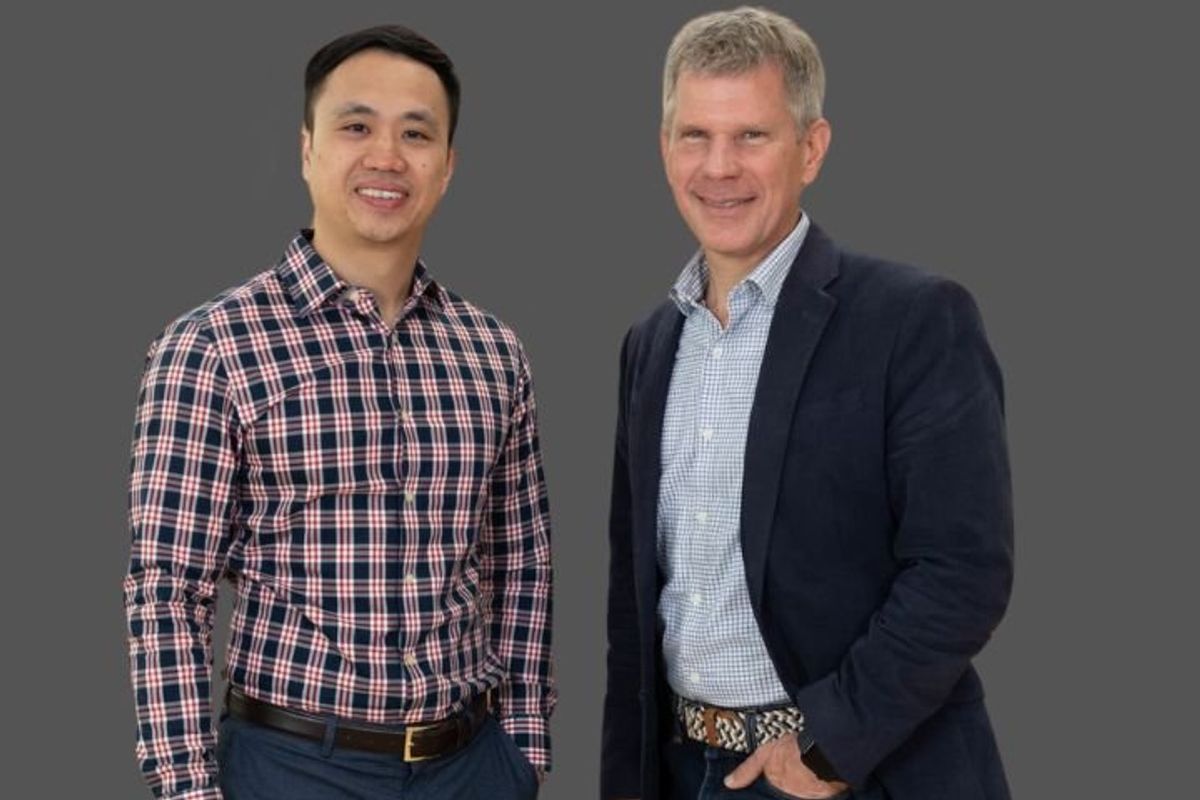Show me the money: Top Houston innovation grant and gift news of 2024
year in review
Editor's note: As the year comes to a close, InnovationMap is looking back at the year's top stories in Houston innovation. Money means a lot to startups and other innovative entities, and while startups are usually scouting venture capital investors, grants and donations are key too. These are the most-read news articles about grants and gifts — be sure to click through to read the full story.
Rice researchers secure $35M federal grant to advance medical device technology

Rice’s Biotech Launch Pad will lead the effort to commercialize the device. Photo courtesy Rice University
Rice University has secured part of a nearly $35 million federal grant aimed at commercializing a bioelectric implant for treatment of type 2 diabetes and obesity.
The federal Advanced Research Projects Agency for Health awarded the $34.9 million grant to Rice and several other universities.
Rice’s Biotech Launch Pad will lead the effort to commercialize the self-contained, implantable Rx On-site Generation Using Electronics (ROGUE) device. ROGUE houses cells that are engineered to produce type 2 diabetes and obesity therapies in response to patients’ needs. Continue reading.
Houston health care institutions receive $22M to attract top recruits

The grants, which are between $2 million to $6 million each, are earmarked for recruitment of prominent researchers. Photo via Getty Images
Houston’s Baylor College of Medicine has received a total of $12 million in grants from the Cancer Prevention & Research Institute of Texas to attract two prominent researchers.
The two grants, which are $6 million each, are earmarked for recruitment of Thomas Milner and Radek Skoda. The Cancer Prevention & Research Institute of Texas (CPRIT) announced the grants May 14.
Milner, an expert in photomedicine for surgery and diagnostics, is a professor of surgery and biomedical engineering at the Beckman Laser Institute & Medical Clinic at the University of California, Irvine and the university’s Chao Family Comprehensive Cancer Center. Continue reading.
Texas organization grants $68.5M to Houston institutions for recruitment, research

Several Houston organizations have received millions from the Cancer Prevention and Research Institute of Texas. Photo via tmc.edu
Three prominent institutions in Houston will be able to snag a trio of high-profile cancer researchers thanks to $12 million in new funding from the Cancer Prevention and Research Institute of Texas.
The biggest recruitment award — $6 million — went to the University of Texas MD Anderson Center to lure researcher Xiling Shen away from the Terasaki Institute for Biomedical Innovation in Los Angeles.
Shen is chief scientific officer at the nonprofit Terasaki Institute. His lab there studies precision medicine, including treatments for cancer, from a “systems biology perspective.” Continue reading.
Houston health care institution secures $100M for expansion, shares renderings

Baylor College of Medicine's Lillie and Roy Cullen Tower is set to open in 2026. Rendering courtesy of SLAM Architecture
Baylor College of Medicine has collected $100 million toward its $150 million fundraising goal for the college’s planned Lillie and Roy Cullen Tower.
The $100 million in gifts include:
- A total of $30 million from The Cullen Foundation, The Cullen Trust for Health Care, and The Cullen Trust for Higher Education.
- $12 million from the DeBakey Medical Foundation
- $10 million from the Huffington Foundation
- More than $45 million from members of Baylor’s Board of Trustees and other community donors, including the M.D. Anderson Foundation, the Albert and Margaret Alkek Foundation, and The Elkins Foundation.
“The Cullen Trust for Health Care is very honored to support this building along with The Cullen Foundation and The Cullen Trust for Higher Education,” Cullen Geiselman Muse, chair of The Cullen Trust for Health Care, says in a news release. “We cannot wait to see what new beginnings will come from inside the Lillie and Roy Cullen Tower.” Continue reading.
Cancer-fighting Houston lab led by Nobel laureate receives $5M grant at annual event

MD Anderson's lab led by Nobel laureate James Allison has secured a $5 million donation. Photo courtesy of MD Anderson Cancer Center
The James P. Allison Institute at The University of Texas MD Anderson Cancer Center scored a $5 million gift at its second annual symposium.
On behalf of Mayor John Whitmire, Oct. 10, 2024 was named “James P. Allison Institute Day,” and it was also the day that the TMC3 Collaborative Building in the Texas Medical Center’s Helix Park greeted 900 attendees for the scientific symposium, entitled “Immunotherapy in Space and Time: The Tumor Microenvironment.”
Allison, who won the Nobel Prize in 2018, leads his namesake institute that was founded in 2022 to advance translational and clinical within cancer to create new, synergetic therapies. In addition to his role as director of the institute, he is regental professor and chair of Immunology at MD Anderson. Continue reading.

 The Rice team is collaborating with others from MIT, Oak Ridge National Lab, the University of Illinois Chicago and University of Kansas. Photo via Rice.edu
The Rice team is collaborating with others from MIT, Oak Ridge National Lab, the University of Illinois Chicago and University of Kansas. Photo via Rice.edu Tho Tran (left) and Bradley McConnell are professors at UH. Photo via UH.edu
Tho Tran (left) and Bradley McConnell are professors at UH. Photo via UH.edu Apple doubles down on Houston with new production facility, training center Photo courtesy Apple.
Apple doubles down on Houston with new production facility, training center Photo courtesy Apple.